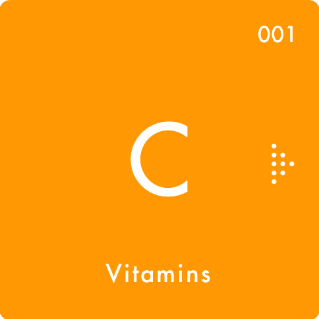
Health functions
Vitamin C (ascorbic acid) contributes to the normal health and function of bones, teeth, cartilage, gums, skin, blood vessels, and the nervous system. Read More

Vitamin C is water-soluble vitamin, also known as ascorbic acid. Even before its discovery, physicians recognized that there must be a compound in citrus fruits preventing scurvy, a disease that killed many sailors a few hundred years ago. Later research revealed that humans depend on external sources to cover their vitamin C requirements, while most animals are able to synthesize vitamin C in their body (1, 82).

Vitamin C (ascorbic acid) contributes to the normal health and function of bones, teeth, cartilage, gums, skin, blood vessels, and the nervous system. Read More

The results of most earlier prospective studies indicated that low or deficient intakes of vitamin C were associated with an increased risk of cardiovascular diseases and that modest dietary intakes of about 100 mg/day were sufficient for maximum reduction of cardiovascular disease risk among non-smoking men and women (2). Read More
Things to know about Vitamin C
The recommended dietary allowance (RDA) of vitamin C (ascorbic acid) is dependent on age, gender, and other factors. Read More
Nutrition surveys in several European countries, such as Austria (37), Ireland (38) and the Netherlands (39), suggest that only close to 50% of the population meet national intake recommendations for vitamin C. Read More
Treatment with vitamin C has consistently resulted in improved dilation of blood vessels in individuals with atherosclerosis as well as those with angina pectoris, congestive heart failure, high cholesterol, and high blood pressure. Read More
Symptoms of vitamin B12 deficiency (or cobalamin deficiency) include numbness and tingling, difficulty walking, memory loss, disorientation, and dementia. Read More